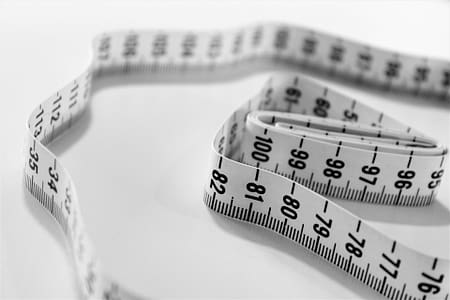Fasting is an immensely healthy and beneficial exercise when done properly. It has anti-aging effects, reduces inflammation in the body, can reduce sugar cravings and is also proposed to cure some cancers. This article will guide you in a medically approved fast regime to be administered as prescribed below. This tried-and-tested fast can greatly impact your health for the good.
Fasting should not be done for the purpose of losing weight (fat weight), although this is a positive side effect of a fast. The main goal of a fast is for improved biological processes in the body. When it comes to weight loss through selective caloric reduction we will see, below, the negative effects this can have.
These fasting instructions have been applied in The Rensburg Clinic- a medical weight-loss and hormone therapy clinic situated in Perth, Australia. Dr Rensburg has been practicing fasting with his obesity and hormone patients for over 30 years will great results.
There are a number of types of fasting with varying definitions. However, we will focus on a specific ‘food-restriction fast’: A complete and willing abstinence from all food and some drinks for a period of time, which is between 24 to 84 hours.
Fasting instructions:
1. Length of fast: (24 hr noon to noon) (36-40 hr ‘1’ day) (60 hr ‘2’ days) (84 hr ‘3’ days)
2. How often:
(Once/week) (Once/month) (Once/Year) (Twice/Year)
3. Once to 4 times per year you may do a 2 to 3 day fast, with great benefits to your health.
4. What to take in:
Only liquids: Water, Coffee, Tea (no milk or sugar). And nothing else. Alternatively, you can fast on water alone. Coffee and tea can help ease the hunger pangs but ideally should be omitted.
5. Medications to take or not to take:
a. Usual medications: take as usual, unless otherwise advised.
b. CHT (Corrective Hormone Therapy):
Take as usual prescribed to you.
c. Nutritional Supplements: don’t take any.
Only Take extra: Vit. C (x3)
6. Medical instructions: Always first consult your doctor before undergoing a fast. Remember, there are contraindications and precautions for fasting. If you are a smoker do not smoke during the fast. (Better stop altogether). Report anything unusual to your Doctor.
7. What else to do?
Usually, you follow your usual routine in its entirety, including exercise. The only exception is you don’t eat and you go to bed early.
8. However, there may be the following exceptions: decreased exercise, rest as much as possible, stop working, meditate, monitor your BP, ketones, etc. Please consult your doctor on the best options for you.
9. Choose the day of the week that suits you the best. Most folks seem to prefer Mondays. A small percentage prefers weekends. Work out whichever day works the best for you and stick to it.
9. Keep in mind that the first few times may be a bit tricky, especially evenings. Don’t worry; this will soon be under control after a few fasts.
LET’S EASE INTO THIS – I WANT YOU TO TRY FASTING BETWEEN MEALS.
Tip: For fasting to actually work for you, you actually have to do it…
***Reasons for Fasting:
Research has confirmed that many biological repair and rejuvenation processes take place in the absence of food, and this is another reason why all-day grazing triggers disease. It’s good for cows, but not humans. We evolved and adapted to an irregular food supply
In a nutshell, your body was designed to: a) run on fat as its primary fuel, and b) cycle through periods of feasting and fasting (and sometimes famine).
Our metabolism calibrated to the above metabolic situation due to the erratic food supply in the past. Today, however, most people do the complete opposite; feasting and feasting on rubbish…
When you’re sleeping, your body needs the least amount of energy, and if you feed it at a time when energy is not needed, you end up creating a situation in which your mitochondria create excessive amounts of damaging free radicals. Fasting is another important factor that can help optimise your mitochondrial function and prevent cellular damage from occurring.
When you go without food for a period of time, the resulting metabolic changes stimulate a natural cleansing process known as autophagy, or mitophagy. In the case of mitochondrial autophagy, your body detoxifies and rids itself of damaged cells.
Your body can only do certain housekeeping if you are fasting. When you’re in constant “feast mode,” your body forgoes many of these benefits. That does not mean you need to (or should) starve yourself for extended periods of time though.
Benefits of Fasting – Numerous, but to mention a few:
- You will burn fat and lose weight. Speeds up your metabolism
- You will burn ketones, which is beneficial for your brain,
- Decrease your risk for some cancers.
- Improves hunger and eating patterns Improves your skin
- Improves your immune system and slows the ageing process
- Improves your hormones and endocrine functions
- Rests the digestive system
- You will generally feel well (most patients report feeling very well indeed).
- Additionally, you save time catching up with some other work (usually up to 3 hours per day).
- Fasting once/week can save you about $2,000 per year (a nice plane ticket somewhere)
Fasting is at the foundation of the body’s ability to protect, repair, and rejuvenate itself -Valter Longo, PhD
There are 2 main reasons why people fast. They are:
- Fasting to control weight (nil food per mouth for period of time)
- More weight loss,
- More lean mass gain, V More visceral fat loss,
- Less hunger,
- Been used throughout human history, ✓Lower insulin,
- Less insulin resistance.
- More Somatropin (GH) release and action
- See the other mentioned benefits of fasting
- Caloric Reduction to control weight: Reduced overall food intake on a daily or sporadic basis
- Less Weight loss = not good
- More lean mass loss = not good X Less visceral fat loss = not good
- Harder to keep weight off = bad
- Hungrier = not good
- Higher insulin = not good
- More insulin resistance = not good
Virtually every single medical doctor, and especially dieticians and mainstream media, will tell you to use choice B, parroting their advice “Fasting is bad for you”, without evidence at all.
I advise Patients to do A instead. A skillful combination of A and B works best if you need to lose a lot of weight. To follow B you need a reputable healthcare practitioner to guide you on the best means of the right caloric reduction.
Do B alone and you may/will inevitably feel disappointed with the results.




